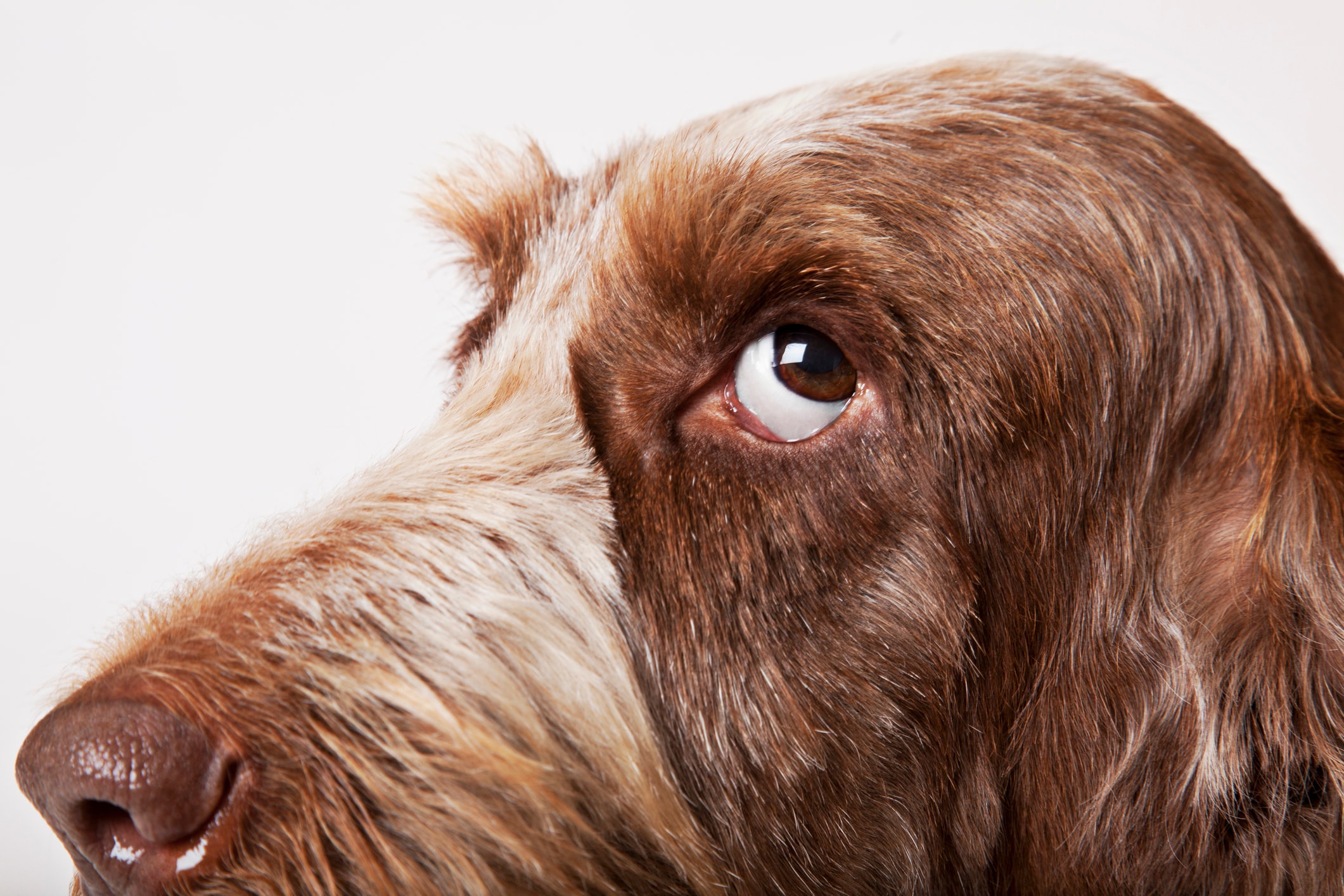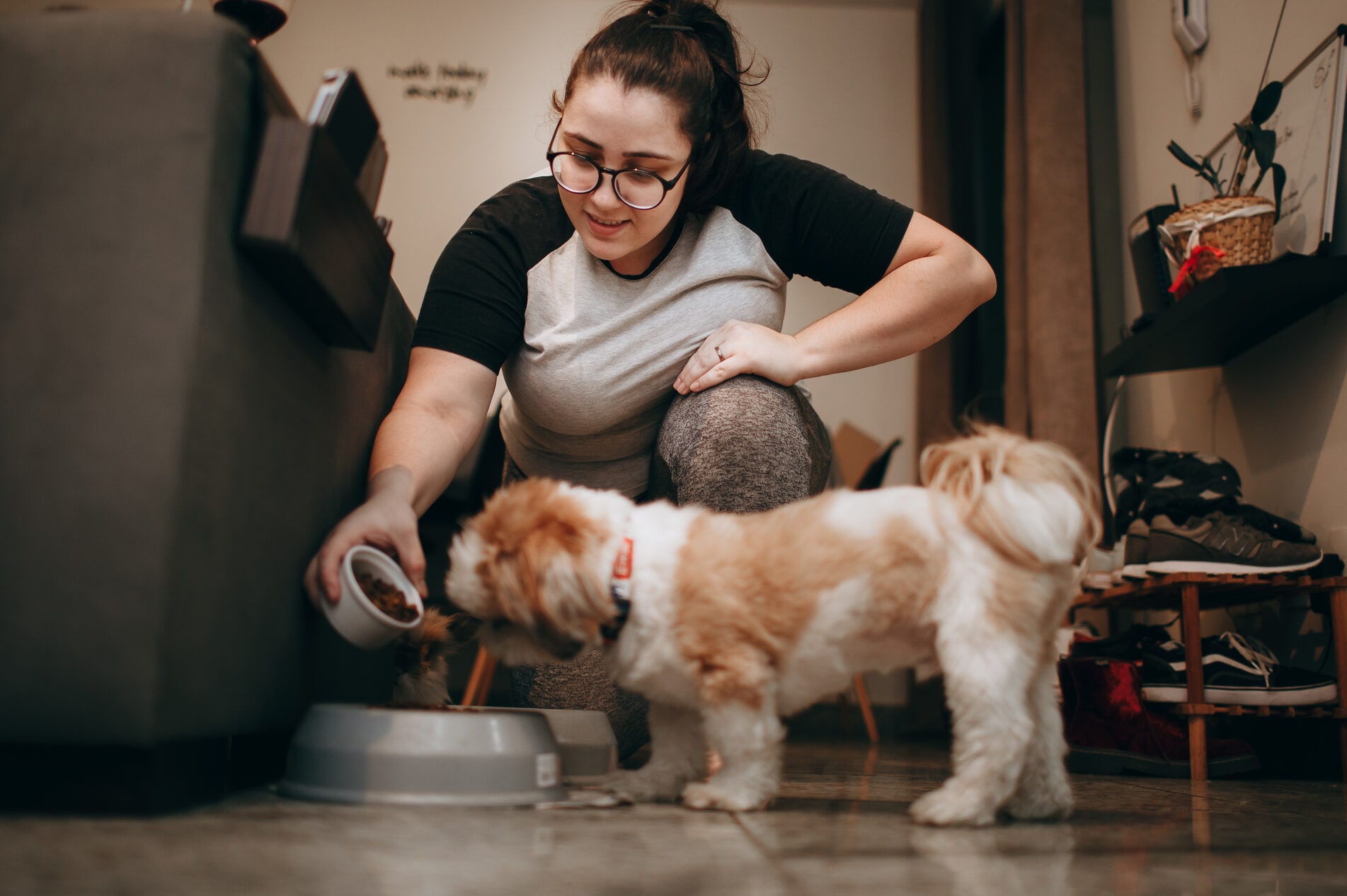Liver cancer in dogs is fairly uncommon, with Pet Cancer Center estimating that this type of cancer makes up only 1.5 percent of all canine cancer diagnoses. Just because this disease is rare, however, does not mean it is a death sentence. While the prognosis is fairly poor for dogs with late-stage cancer, there are a number of treatment options available for your dog if you notice the signs early.
Symptoms
Veterinarian Dr. Chris Bern of “A Vet’s Guide to Life” says, “Symptoms of liver disease, including cancer, are often very vague and appear like many other disorders. The most common signs include a decreased appetite, vomiting, weight loss, weakness and lethargy. In advanced liver disease, there may be a yellowing of the eyes, gums and skin.”
Though late-stage liver cancer in dogs can be tough to treat, looking for the following signs can help vets catch it early:
- Loss of Appetite
A diminished interest in food can be an early warning sign of liver cancer.
- Weight Loss
While a pound or two lost is no big deal (especially for larger breeds), if your dog loses 10 percent (or more) of his body mass very rapidly, it’s time to call the vet.
- Vomiting or Diarrhea
Certain breeds of dog are just more prone to stomach upset, but if you notice a spike in vomiting or diarrhea incidents, it could be a sign of something serious.
- Increased Thirst
Though dogs may drink a full bowl or two of water per day, if your dog is hanging around the water dish for several hours a day and drinking more than usual, it may be a warning sign.
- Loss of Balance
If your dog’s gait has changed significantly (not due to an injury), it could be an indication that something is wrong internally.
- Confusion
If your dog is acting strangely around family members or seems disoriented around furniture, it could be a serious symptom, and you should have it checked out.
- Jaundiced Eyes
Yellowed eyes typically indicate a liver problem. Even though this symptom isn’t exclusive to cancer, it should still be checked out, as any liver problem is a cause for concern.
- Fatigue
Though dogs older than 10 may naturally slow down as they age, if you notice your dog showing increased lethargy over a short amount of time, it could be a symptom of liver cancer. Your dog walker may also notice if your dog has been getting slower lately, so make sure they know to tell you if they see any behavioral changes.
- Blood in Stool or Urine
If you notice blood when your dog relieves herself, it could indicate a number of health issues, including liver cancer.
- Seizures
If you notice that your dog suddenly goes limp and then seems to move his legs involuntarily (like he’s treading water), your dog is experiencing a seizure, and you should immediately bring him to the vet.
- Unusual Smells
If you notice a new, gross smell from your dog, especially from his mouth, nose or rear, it could indicate a tumor.
Treatment Options
Dr. Jessica Vogelsang says, “Most liver cancers are managed through surgery, chemotherapy or a combination of the two. Surgery is usually the treatment of choice, when possible. A veterinary oncologist can help determine the most appropriate treatment plan based on the type of cancer.” Though it’s possible for dogs of any age to contract liver cancer, Dr. Vogelsang says that those over the age of 10 are at the greatest risk.
Treatment can also depend on the type of liver cancer. Dr. Bern adds, “There is no single cancer that is ‘liver cancer.’ There are several kinds of cancer that can end up in the liver, some of them developing directly from the liver tissue, and others spreading from different parts of the body. The variety of types of cancer mean that there are different options for treatment. In some cases, surgery is indicated to remove the tumor and part of the liver.”
While it is imperative to bring your dog to the vet if you see any of these symptoms, know that early detection is a powerful weapon against this rare disease, and there are several treatment options for liver cancer in dogs.
Want more information on cancer in dogs? Check out 12 Common Dog Cancer Symptoms.
Amanda Kondolojy is a full-time freelancer with more than a decade of caregiving experience.
* This article is for general informational purposes only. It is not intended nor implied to be providing medical advice and is not a substitute for such advice. The reader should always consult a health care provider concerning any medical condition or treatment plan. Neither Care.com nor the author assumes any responsibility or liability with respect to use of any information contained herein.





